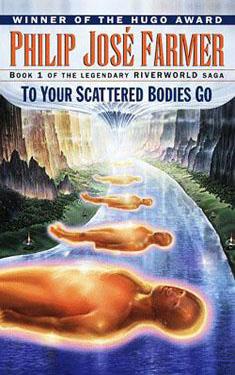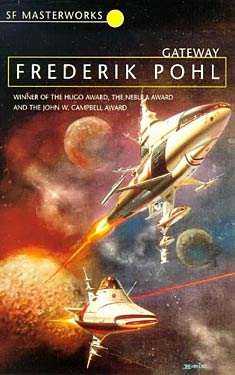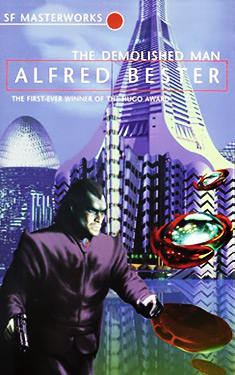Review: Quantum Coin by E. C. Myers
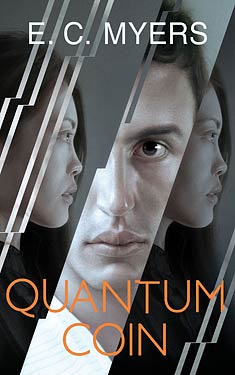 Stats
Stats
Quantum Coin by E. C. Myers
Published 2012 by Prometheus Books/Pyr
Fair Coin Series: Book 2
331 pages
I originally reviewed Fair Coin after winning a copy in a WWEnd giveaway last year. So when Pyr gave Dave and the guys a copy of the sequel, Quantum Coin, they asked if I was interested. I liked Fair Coin well enough; it was fun, did a lot to stoke a latent librarian fetish I didn’t know I was harboring, and ended the Ephraim/Jena/Zoe love triangle in an oh-so-deliciously-yet-unsatisfying way that probably resonates with anyone who has ever had a teenage crush (I09 called it “Pure Awesome Crack”). Well, and of course turning down a free book is just weird, so I told Dave a few months ago that I’d love to review it and could probably do so within a few weeks (clearly an unscrupulous lie).
Time and Space and Everything
Quantum Coin begins almost as soon as Fair Coin leaves off. Ephraim has left the world of universe-jumping behind – sort of – and he is happily in love with Jena Kim. No more coins, no more controllers, no more careless wishes, no more murders. But you know the multiverse is going to put him on notice on the very night, of all nights, that he and Jena plan to finally… cough… go to prom.
GMRC Review: Doomsday Book by Connie Willis
 Jeremy Frantz (jfrantz) reviews SF/F books on his blog The Hugo Endurance Project where he has given himself just 64 weeks to read every Hugo Award winner. This is his ninth GMRC review to feature in the blog.
Jeremy Frantz (jfrantz) reviews SF/F books on his blog The Hugo Endurance Project where he has given himself just 64 weeks to read every Hugo Award winner. This is his ninth GMRC review to feature in the blog.
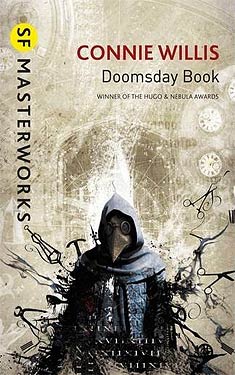 Time travel happens. And if you’re an excitable undergad historian that means you can have the chance to visit your very favorite times throughout history. For Kivrin Engle, that means the Oxford of medieval England – 1320 to be exact. When the drop is botched and the entirety of Oxford-Present comes down with a deadly virus, Kivrin’s professor, James Dunworthy is racing against the clock to save her, whether she needs saving or not. Meanwhile, Kivrin herself must cope with translation issues, debilitating sickness and some pretty intense experiences of humanity.
Time travel happens. And if you’re an excitable undergad historian that means you can have the chance to visit your very favorite times throughout history. For Kivrin Engle, that means the Oxford of medieval England – 1320 to be exact. When the drop is botched and the entirety of Oxford-Present comes down with a deadly virus, Kivrin’s professor, James Dunworthy is racing against the clock to save her, whether she needs saving or not. Meanwhile, Kivrin herself must cope with translation issues, debilitating sickness and some pretty intense experiences of humanity.
Kivrin or Dunworthy?
The key to whether one enjoys Doomsday Book is in the narrative shifts.
Despite overwhelming sickness, darkness, dirtiness and you know… the possibility of being raped, burned at the stake, or contracting the plague, the tale of Kivrin’s journey to the fourteenth century was so vibrant and emotional, and the townsfolk so distinctly human, that it was probably one of the more compelling stories for me. Mostly, Kivrin herself was just a great experience.
Review: Fair Coin by E. C. Myers
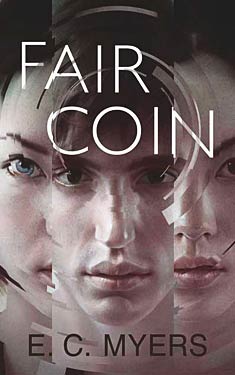 Fair Coin by E.C. Myers
Fair Coin by E.C. Myers
Published in 2012 by Pyr
Hardcover – 285 pages
“911, what is your emergency?”
“My mother took some pills.”
Fair Coin begins with Ephraim finding his mother after what appears to be a suicide attempt. Why? Earlier that day she’d identified his dead body at the hospital and she even had his personal effects that she’d taken home with her, his wallet and library card (both of which he still had in his pocket) and a very strange coin.
When he learns from an anonymous note in his locker that the coin has the ability to grant wishes, Ephraim wastes no time using it to help his alcoholic Mother. But he also approaches the coin with a caution and disbelief that has you thinking he’s read this book before. He suspects all the likely problems and ethical issues. He doubts the intentions of the note writer.
As you might expect, that doesn’t stop him from continuing to use the coin for the less-than-noble purposes of positioning himself and his best friend Nathan in the good graces of the girls of their respective dreams, among other private benefits (BTW, where were all the cute teenage librarians when I was in high school?!). When successive coin flips begin to change his world in unpredictable and undesirable ways, Ephraim gets really, really cold feet.
GMRC Review: The Gods Themselves by Isaac Asimov
 Jeremy Frantz (jfrantz) reviews SF/F books on his blog The Hugo Endurance Project where he has given himself just 64 weeks to read every Hugo Award winner. This is his eighth GMRC review to feature in the blog and the second one this month.
Jeremy Frantz (jfrantz) reviews SF/F books on his blog The Hugo Endurance Project where he has given himself just 64 weeks to read every Hugo Award winner. This is his eighth GMRC review to feature in the blog and the second one this month.
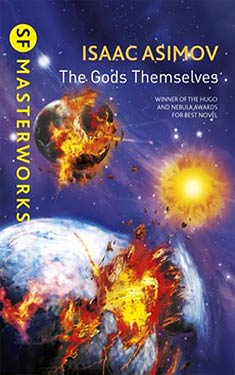 Separated into three different but parallel stories, The Gods Themselves begins when scientists have discovered a way to exchange energy with another universe, the para-universe. Things get dicey when what is at first possibly the single greatest scientific achievement in history, threatens to become a horror story as it is understood that not only the two universes exchanging energy, but also physical laws which could result in our sun going nova.
Separated into three different but parallel stories, The Gods Themselves begins when scientists have discovered a way to exchange energy with another universe, the para-universe. Things get dicey when what is at first possibly the single greatest scientific achievement in history, threatens to become a horror story as it is understood that not only the two universes exchanging energy, but also physical laws which could result in our sun going nova.
Eternal contemporaneity
Published in ’72, winner in ’73, this is another title that it seems difficult to separate from the public scientific discourse of its time. The early 70’s marked the passage of some of the most monumental environmental protection regulations in American history. I saw The Gods Themselves very clearly drawing on the experience of environmental and consumer protection messages being hashed out on the national political stage. But before I’ve got you thinking this is a book about vast conspiracies and coordinated cover-ups, rest assured Asimov elevates his discussion to broader epistemological concerns and again draws on the sentiment of the times as he pulls in questions that, given the 1962 publishing of Thomas Kuhn’s, The Structure of Scientific Revolutions, spoke to the very heart of the philosophy of science in his day.
GMRC Review: Rendezvous with Rama by Arthur C. Clarke
 Jeremy Frantz (jfrantz) reviews SF/F books on his blog The Hugo Endurance Project where he has given himself just 64 weeks to read every Hugo Award winner. This is his seventh GMRC review to feature in the blog.
Jeremy Frantz (jfrantz) reviews SF/F books on his blog The Hugo Endurance Project where he has given himself just 64 weeks to read every Hugo Award winner. This is his seventh GMRC review to feature in the blog.
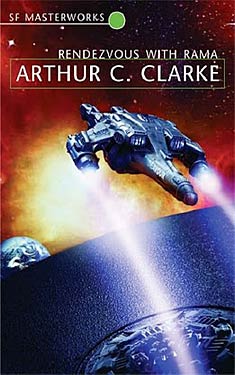 When a ten trillion ton asteroid wanders into the solar system, you take a second look. And when that asteroid turns out to be massive alien spacecraft, you really start to pay attention. This is precisely what happens in Rendezvous with Rama when the crew of the Endeavor ventures to board the vessel and unlock it’s secrets, whatever they may be.
When a ten trillion ton asteroid wanders into the solar system, you take a second look. And when that asteroid turns out to be massive alien spacecraft, you really start to pay attention. This is precisely what happens in Rendezvous with Rama when the crew of the Endeavor ventures to board the vessel and unlock it’s secrets, whatever they may be.
Did I just get smarter?
Of the two titles I’ve read, and especially in the case of Rama, I’ll say that Arthur C. Clarke has an interesting style. There were some truly slow passages, yet it was never boring. There were also some adrenaline fueled moments (including a fun spin on the classic defuse the bomb trope) but even at its most exciting it never stops feeling…clinical. The combination made Rama at once a fast-paced and just plain old fun-to-read book, but it also felt very deliberate, serious and real. You have fun and even feel a little…I don’t know, smarter for having turned the pages? I mean, it’s not that strange an idea, Clarke’s name is practically synonymous with excellence in science and Science Fiction literature.
GMRC Review: To Your Scattered Bodies Go by Philip José Farmer
 Jeremy Frantz (jfrantz) reviews SF/F books on his blog The Hugo Endurance Project where he has given himself just 64 weeks to read every Hugo Award winner. This is his sixth GMRC review to feature in the blog.
Jeremy Frantz (jfrantz) reviews SF/F books on his blog The Hugo Endurance Project where he has given himself just 64 weeks to read every Hugo Award winner. This is his sixth GMRC review to feature in the blog.
Sir Richard Francis Burton died in 1890. He was resurrected along with every other human being that ever lived, hairless and naked in a vast river valley on an unknown planet in an unknown time. Burton eventually bands with an unlikely group which includes a prehistoric Neanderthal, an adolescent girl, an alien from Tau Ceti and a number of others from varying places and times. Armed each with a towel and “grail” (I pictured a metal trash can that provides food and supplies when placed under a mushroom shaped “grailstone”), the group sets out to find out what exactly is going on.
Strange fruit
The best way I can describe this first installment in Philip José Farmer’s Riverworld Saga is to say that it is ripe. With people from all times and places resurrected in one place, an epic river adventure, mass promiscuity and some gratuitous violence, what could possibly be off limits? Within just four short chapters of beginning this book, the juice of possibility was dripping down my arm like an over-ripe peach.
Leaning heavily on all that is possible, the story eventually develops a good head of steam which culminates in a river battle with a group of slaveholders led by none other than Herman Göring. To that point, there had been something Zelazny-esque about the journey that despite little more than a vague conception of the goal or possible outcome, nonetheless moves forward determinedly and is punctuated by alternating periods of despairing self-examination and then of ultra-violence.
Like Zelazny’s Hugo winners, the more that is uncovered along the way, the more questions readers are left with, which creates a kind of slow building and eventually snowballing tension that could have no other outlet than a violence that would have you convinced that real people fought and died. The river battle with Göring’s minions is sweaty, bloody, disturbing and represented the high-point in the book for me.
GMRC Review: Gateway by Frederik Pohl
 Jeremy Frantz (jfrantz) reviews SF/F books on his blog The Hugo Endurance Project where he has given himself just 64 weeks to read every Hugo Award winner. This is his fifth GMRC review.
Jeremy Frantz (jfrantz) reviews SF/F books on his blog The Hugo Endurance Project where he has given himself just 64 weeks to read every Hugo Award winner. This is his fifth GMRC review.
Humans have been living in tunnels on Venus for a number of years, but when suddenly ancient alien spacecraft are uncovered, the universe, just as suddenly, gets a heck of a lot smaller. Robinette Broadhead makes his way out to the Gateway asteroid/base in hopes of striking it rich as a prospector and leaving his problems behind. Once he arrives though, he realizes it’s not quite as simple or as safe as he’d hoped. Alternating between Robinette’s prospecting journeys from Gateway and therapy sessions with a computer some years after later, we slowly unravel the details that have plunged him into a stiflingly dark depression since leaving.
How much do I care about this guy?
I almost always love super advanced computers/self-aware machines. If I have not made this clear in the past, let me do so now. I don’t even care if it is a really anachronistic view of computers – if you make that personality real enough or you give that computer the power to do cool enough stunts, I will be drooling all over the pages. I’m not sure when this obsession started, but I am thoroughly stuck in it and I don’t care to get out.
So when Gateway begins with a computer named “Sigfrid” putting Robinette through a Freudian psychoanalysis session–and it’s a pretty sassy program–I knew I was going to have fun with this one.
My immediate fascination with Sigfrid may have actually worked against my interest in Robinette. He is kind of a jerk and just not that interesting to me, or at least he wasn’t as I read through this time. He isn’t completely colorless, he’s just a really immature guy and maybe a little bit of an anti-hero who had trouble currying any of my favor (come to think of it though, Pohl probably intended that very much). I think there was probably some potential for him, but the way he kept making it so hard to get to know more about Sigfrid made me more than a little frustrated.
The therapy sessions did go a long way to humanizing Robinette in the end though. And that was my take-away here; even once the entirety of space is opened up to us, we are still going to need to deal with our problems, parents are still going to suck (I should know) and people are still going to just have sex and use drugs rather than face up to their issues. Scalzi said it: “I’m still going to need to take out the trash.”
For those who have read this, the ending, which I hope I will not give away for those who haven’t, gave me a little of a Hitchcock’s Psycho feeling – you know the feeling of being made to believe we should care about one person and then abruptly realize it was someone else? I don’t normally like the shocker type ending, but given my previously mentioned propensities, this one worked out in my favor.
Classifieds
Throughout the book are little vignettes, classifieds excerpts or other miscellany from life on Gateway. Some of the excerpts worked better than others. I’m not sure if it was just my printing but they seemed to be placed nearly at random and practically every other instance interrupted a thought/sentence and, even if it was interesting, the effect was to pull me right out of the story almost every time. Of the different types of excerpts, I most enjoyed the classifieds and the mission reports. Most others were not quite mildly interesting and there were quite a few aimed at simply reiterating how little we know about the Heechee and seemed redundant.
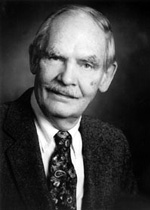 I didn’t always understand why this method was chosen either. Sure it functions as kind of a unique worldbuilding technique but interrupting the rest of the text didn’t make sense and to be honest some of the mission reports just seemed like copouts in place of having to work include some semi-relevant info into the story when it otherwise would not fit. The classroom exchanges could have easily been shortened and worked into their own chapter and would have been much easier to read and probably more interesting to boot. But then, Pohl won not only the fan choice (Hugo) but also the writers’ choice (Nebula) awards, and according to the back cover copy Pohl called this the best thing he’d ever written, which probably illustrates the fact that I’m just making this up as I go along and my literary judgment is worth slightly less than squat.
I didn’t always understand why this method was chosen either. Sure it functions as kind of a unique worldbuilding technique but interrupting the rest of the text didn’t make sense and to be honest some of the mission reports just seemed like copouts in place of having to work include some semi-relevant info into the story when it otherwise would not fit. The classroom exchanges could have easily been shortened and worked into their own chapter and would have been much easier to read and probably more interesting to boot. But then, Pohl won not only the fan choice (Hugo) but also the writers’ choice (Nebula) awards, and according to the back cover copy Pohl called this the best thing he’d ever written, which probably illustrates the fact that I’m just making this up as I go along and my literary judgment is worth slightly less than squat.
Recommendation
I had a little trouble identifying with Rob as I read Gateway, but now that I’ve written this review, I’m starting to see him as an ingenious character as devised by Pohl. He’s just so blah that it makes the ending all that much more shocking. This was an easy, fast-paced read (not for the action, it just read that way) and while it incorporated a lot of my favorite SF elements, I wouldn’t expect this to be one of my favorites. It did make me want to seek out more of Pohl’s work. I couldn’t say how accurate they were but if you enjoy the tension and drama of a juicy therapy session, you’ve got to read this!
GMRC Review: Way Station by Clifford D. Simak
 Jeremy Frantz (jfrantz) reviews SF/F books on his blog The Hugo Endurance Project where he has given himself just 64 weeks to read every Hugo Award winner. This is his fourth GMRC review.
Jeremy Frantz (jfrantz) reviews SF/F books on his blog The Hugo Endurance Project where he has given himself just 64 weeks to read every Hugo Award winner. This is his fourth GMRC review.
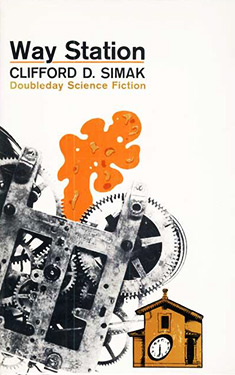 As Way Station begins, we learn that the CIA has been monitoring Enoch Wallace for many years. He has committed no crime; he is no threat to national security. Instead they’re concerned because he is nearly 125 years old. He fought in the Civil War at the Battle of Gettysburg and no one can explain his elongated years, nor do his neighbors care to figure it out. What they find when they start to investigate his property more closely is alarming to say the least.
As Way Station begins, we learn that the CIA has been monitoring Enoch Wallace for many years. He has committed no crime; he is no threat to national security. Instead they’re concerned because he is nearly 125 years old. He fought in the Civil War at the Battle of Gettysburg and no one can explain his elongated years, nor do his neighbors care to figure it out. What they find when they start to investigate his property more closely is alarming to say the least.
Turning a Phrase
Way station is a welcome respite from the pace and paleness of many of the other early Hugo winners. The way that Simak could create a sense of place and fill it in with the kind of details that stick with you, was something completely different than the other winners up to this point. Imagine you visited the same valley every summer, then one year you don’t make it until autumn and you see all the colors of the leaves and smell the crisp air and it is an entirely new place. That was exactly my experience with Way Station. Well…not literally, but so much SF lures you in with incredible science and fantastic spaceships or intergalactic warfare and just generally assaults the senses into shock and awe. Simak invites you in, pours you tea and introduces you to a character-led story that is both relaxing and as gripping as any high-flying SF.
I may have complained before that some, especially Zelazny, like to throw their readers into the middle of a story and let them catch up in their own time, likely many pages in. Simak eases you into a world which is every bit as strange, but helps you to feel so much a part of it you can’t help being interested from the very first page. Of course both styles are absolutely respectable methods for beginning a tale, but in this case, Simak introduces his characters with a grace and thoughtfulness that rivals any of the best literature (mainstream or genre). Just have a taste or two:
The noise was ended now. The smoke drifted like thin, gray wisps of fog above the tortured earth and the shattered fences and peach trees that had been whittled into toothpicks by the cannon fire. For a moment silence, if not peace, fell upon those few square miles of ground where just a while before men had screamed and torn at one another in the frenzy of old hate and had contended in an ancient striving and then had fallen apart, exhausted.
…
There were proud names that were the prouder now, but now no more than names to echo down the ages—the Iron Brigade, the 5th New Hampshire, the 1st Minnesota, the 2nd Massachusets, the 16th Maine.
And there was Enoch Wallace.
He still held the shattered musket and there were blisters on his hands. His face was smudged with powder. His shoes were caked with dust and blood.
He was still alive.
Chapter 1
“His name,” said Lewis, “is Enoch Wallace. Chronologically, his is one hundred and twenty-four years old. He was born on a farm a few miles from the town of Millville in Wisconsin, April 22, 1840, and he is the only child of Jedediah and Amanda Wallace. He enlisted among the first of them when Abe Lincoln called for volunteers. He was with the Iron Brigade, which was virtually wiped out at Gettysburg in 1863.”
Chapter 2
You could see the smoke right? Smell the gunpowder and just picture yourself among the peach trees? I know I could. And if that wasn’t enough to make you want to dive head first into Way Station, then he begins Chapter 2 with that second gem. Come on—that’s just too much fun!
Building a Universe
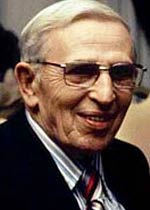 Amidst those beautiful descriptors exists some pretty loosey-goosey scientific descriptions and alien creatures. Simak was nowhere afraid to dismiss laws of physics or explanations of some of the underpinnings of the universe. In contrast to such precision in his storytelling elsewhere, is that a bad thing?
Amidst those beautiful descriptors exists some pretty loosey-goosey scientific descriptions and alien creatures. Simak was nowhere afraid to dismiss laws of physics or explanations of some of the underpinnings of the universe. In contrast to such precision in his storytelling elsewhere, is that a bad thing?
My first thought is that this would normally detract somewhat from any story. Certainly people always notice, and many are bothered, when some anachronistic bit of science or defunct company name pulls you out of the story. When alien technology is so foreign and unexplainable, or when something is so glaringly ridiculous, it can interrupt a story just as much as the worst anachronism.
This is exactly the kind of thing that happens in Way Station. What’s that—an amorphous blob in a tank, clicking at Enoch to leave him alone? How does that work? Not sure, but let’s not think about it too much and just move on. How about the suggestion to make everyone in the world too stupid to understand technology? Well, practically everything we use is some kind of technology and that so much of the meaning of our existence comes from our interaction with technology (so says Heidegger anyway) so I’m not sure exactly how that might work.
But you know what? Those “problems” are also what make this book wicked cool! Super-freakazoid aliens and wacky theoretical science are pretty rad in themselves and Simak, finds a way to make it rad-er! In Enoch’s universe, it is precisely the unintelligibility that contributes to his feeling of loneliness, hopelessness and on-again off-again pessimistic view of humanity. I mean, what could have had me questioning the story so much that it could have been difficult to read, actually ended up propelling the story and contributed to the feeling of dis-ease about the world. Yeah, that’s bad…Michael Jackson bad.
Recommendation
If the Clifford D. Simak Estate were looking to pay someone to just read and re-read this book over and over forever…I’d do it. No lie. I can’t say enough good things about this novel. It reads like literature, poetry sometimes, and sounds like SF. There are crazy aliens, sweet space travel, an awesome house, beautiful landscapes, complex personalities and despair at the human condition. Is there really anything more you could ask for?
GMRC Review: Farmer in the Sky by Robert A. Heinlein
 Jeremy Frantz (jfrantz) reviews SF/F books on his blog The Hugo Endurance Project where he has given himself just 64 weeks to read every Hugo Award winner. This is his third GMRC review.
Jeremy Frantz (jfrantz) reviews SF/F books on his blog The Hugo Endurance Project where he has given himself just 64 weeks to read every Hugo Award winner. This is his third GMRC review.
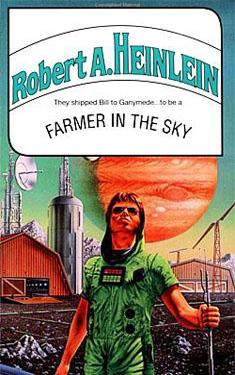 Farmer in the Sky is a YA title, of which Heinlein wrote over a dozen, and this was my first. Here, Bill Lermer and his father, George, have applied for permission to emigrate to Ganymede, the third moon of Jupiter. We follow them on their trip out and as they navigate the hardships of colonizing and farming the harsh moon’s lava-encrusted landscape and also deal with the occasional life-threatening disaster millions of miles from Earth.
Farmer in the Sky is a YA title, of which Heinlein wrote over a dozen, and this was my first. Here, Bill Lermer and his father, George, have applied for permission to emigrate to Ganymede, the third moon of Jupiter. We follow them on their trip out and as they navigate the hardships of colonizing and farming the harsh moon’s lava-encrusted landscape and also deal with the occasional life-threatening disaster millions of miles from Earth.
So (not) Heinlein
This is Heinlein’s second Hugo winner of the 1950’s, after Double Star (1956), (first technically, but it was a retro) and if there is anything similar about these two novels, it is the characters. They are the kind of people that no one really is, but everyone identifies as the kind of person they are or would like to be. Bill is just one of those characters (George too, but who cares about George really). I was sorry I didn’t read this book at a younger age because Bill was totally one of those characters who I would have tried so hard to emulate…and would have been so sad when I didn’t.
Apart from the characters, the style of the rest of the book was rather dry and straightforward and generally subdued compared to any of Heinlein’s other titles I’ve read. Somehow it seemed fitting considering the younger audience and it’s never dry to the point of boring, but it is a noticeable departure from I have become accustomed to in his later works (even Double Star).
Heinlein has also been credited through the years with a number of predictions of future technologies (though some, like GPS in The Number of the Beast, are debatable). It is always fun when a SF author predicts some crazy contraption and this is another of those situations. In Farmer in the Sky, Heinlein is said to have predicted the microwave oven. The story first appeared in Boys’ Life in 1950 and I’m not entirely clear on when microwave ovens were invented for home use so I can’t really add anything to that discussion other than continued mystery and intrigue. Nevertheless, if that’s your thing, then you may be interested.
Emigration
Bill’s Earth is overcrowded and seeing animals like mountain lions is rare, if there’s even any left. Aliens exist on Mars and Venus which, as we all know, I love to see and humans have already begun colonizing the solar system as far out as Jupiter’s moons. Back on earth, food has been rationed and with Bill’s mother dead, Bill cooks for his father and makes sure their meager rations are accounted for.
Things don’t seem to have reached Malthusian proportions yet, but life has definitely grown uncomfortable for the people on Earth. So when another ship is commissioned to send emigrants to Ganymede it is easy to understand Bill’s sudden interest without having to be told everything he ever thought about settling on another planet.
Heinlein actually does a pretty spectacular job of painting an extremely subtle picture of what life and Earth was like and allows the reader to fill in the gaps, which I also love. There are some times that the book is more Hard SF, but those are really just the parts of space travel and astronomy that Bill is interested in so it’s kind of fun that the book slips in and out of different styles.
Back to the point though, the reasons for emigrating at this point in the story are ostensibly just to alleviate the population pressures on Earth, but we come to understand that everyone really has their own reasons for leaving and a real sense of adventure pervades the first eight or nine chapters. Reading from a teenager’s perspective only added to the excitement and I had a lot of fun with it. Thinking about it now though, it is a little strange (in a good way) to think of how dangerous the journey out was but how light-hearted the book felt in the face of a lot of unknowns about what life would really be like on one of Jupiter’s moons.
And now for something completely different…
That is, until they actually reach the surface of Ganymede. Heinlein has let us have our fun and now he makes us pay up. From this point forward, everything is the worst and the universe sucks so I hope you weren’t too attached to the fun of getting out here. The material completely changes and the entire pace of the book slows down, in a really good way… Bill grows up.
 Of course, settling and attempting to farm a lifeless, freezing, lava-encrusted moonscape is going to be difficult and I guess you could expect this to happen, but then Heinlein piles on more. Disaster strikes the entire moon and nearly kills everyone and just as soon as we recover, Bill has a discussion with another settler/scientist who completely rocks his worldview. And right after that Bill stumbles on a discovery that changes everything he knows about the universe. I don’t want to give this away, but it gets pretty grim…and Bill handles it! Not handles it like some technology saves the day and “oh what a happy ending,” but he struggles with it internally and then consciously chooses to face a suddenly very foreboding future. How cool is that?! I thought it was great to see a young man deal with a problem in a way that most adults don’t. Read this kids!
Of course, settling and attempting to farm a lifeless, freezing, lava-encrusted moonscape is going to be difficult and I guess you could expect this to happen, but then Heinlein piles on more. Disaster strikes the entire moon and nearly kills everyone and just as soon as we recover, Bill has a discussion with another settler/scientist who completely rocks his worldview. And right after that Bill stumbles on a discovery that changes everything he knows about the universe. I don’t want to give this away, but it gets pretty grim…and Bill handles it! Not handles it like some technology saves the day and “oh what a happy ending,” but he struggles with it internally and then consciously chooses to face a suddenly very foreboding future. How cool is that?! I thought it was great to see a young man deal with a problem in a way that most adults don’t. Read this kids!
Recommendation
I really, really liked that Heinlein respected his younger readers enough to trust them to deal with some difficult topics. I’m a firm believer that adults expect too little of our younglings and while I’m not sure how I would have handled this in my early teens, I appreciated it now. Overall, if you’re in the mood for some juvenile fiction, Farmer in the Sky is definitely the way to go.
GMRC Review: The Demolished Man by Alfred Bester
 Jeremy Frantz (jfrantz) joined WWEnd at the beginning of Febuary and has quickly caught up on the Grand Master Reading Challenge. Jeremy reviews SF/F books on his blog The Hugo Endurance Project where he has given himself just 64 weeks to read every Hugo Award winner.
Jeremy Frantz (jfrantz) joined WWEnd at the beginning of Febuary and has quickly caught up on the Grand Master Reading Challenge. Jeremy reviews SF/F books on his blog The Hugo Endurance Project where he has given himself just 64 weeks to read every Hugo Award winner.
A few centuries from now, espers (Peepers, telepaths) have integrated into every level of society, making premeditated murder a thing of the past. How could someone harbor that kind of hatred when someone is liable to read your thoughts at any second? Enter Ben Reich, immensely wealthy and immensely disturbed but a “normal”. Reich plans to murder his business rival and take over his company and the galaxy, destroying the Esper Guild in the process.
Police Prefect Lincoln Powell is an esper and an insanely smart and adroit detective. Very early in his investigation he realizes that Reich is the criminal he’s after and sets about finding enough evidence for a conviction and sentence of “demolition”.
Sure, Freudian themes are all over the place in this book, and while that likely will float a lot of boats, I was drawn to the eugenics program devised by the Esper Guild. This is also what made me want to see Reich succeed, despite the fact that I was clearly supposed to hate him. In this world, Espers are seen as the pinnacle of human ability and the Esper Guild only allows espers to marry other espers in order to cultivate their unique skills. Moreover, even a world in which humanity has evolved to have integrated telepaths into every level of society and nearly transcended violence, it is a computer (Old Man Mose – good computer name right?) that must administer justice and “normals” are treated as nearly second-class citizens by the Espers. To me there is something deeply unsettling about what this society had to give up for their peace.
Reich’s crime though is an opportunity for “normals.” If Reich gets away with murder, and a normal is able to circumvent the infallible esper safety net, then a huge hole will have been punched in the fabric of this unfair system. The fact that Reich’s crime will likely make him the most powerful human in the galaxy would also mean an elevation of normal status. If Reich were unsuccessful and the good guys won, it could very possibly mean something dreadful for humanity and the title “The Demolished Man” takes on a wholly new meaning.
Indeed there were so many deeply layered themes in this book that I would think it would have had wider appeal over the years.
Melodrama
Most of the time, when you hear about melodrama it’s always in reference to theater or film but if there ever was a book exhibiting the same themes, it was The Demolished Man. When the book starts Ben Reich is clearly a monster, an insane, sad and absolute Mad Man. And not in a cool way. He is just sick and out of control and on the loose! As he is planning and committing D’Courtney’s murder, one cannot help but root for his failure. And yet, he is a truly captivating individual. It’s like watching a car wreck, you just can’t look away.
Powell is a 1st class esper and as such can delve into the deepest corners of the subconscious. He is an equally unstoppable force and the collision of these two gigantic personalities is really something to behold. He is an exceptionally skilled and exceptionally passionate police prefect and whenever Reich seems to (always) stay one step ahead, Powell is under tremendous pressure to devise some new scheme to trap Reich.
After the crime is committed, once Reich and Powell are desperately trying to locate the only witness, I found myself enjoying the competition so much that I literally could not take my eyes off the page (“Where is that damn girl!”). But this owes as much to the outrageous personalities of the two central figures as it does to the unique character of Bester’s prose.
A Graphic Novel
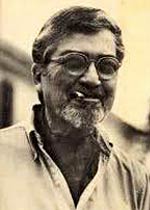 The narrative in The Demolished Man is primarily driven by Alfred Bester’s dialog, the pace and strength of which is both propelled to a fever pitch and readable by his superb use of space and symbols.
The narrative in The Demolished Man is primarily driven by Alfred Bester’s dialog, the pace and strength of which is both propelled to a fever pitch and readable by his superb use of space and symbols.
When espers stick to telepathic messages, they can communicate at lightning speed (I really like this idea and it reminded me of BrainPal communication from Old Man’s War by John Scalzi). If an esper conversation is at first disorienting, it is also immediately natural and his use of visual stimuli makes perfect sense in light of the fact that espers prefer to communicate by telepathic messages and symbols. I even questioned if Bester had taken this far enough. Why would espers limit themselves to sending images of text? In the end, I was happy to realize that with each conversation between a new pair of espers, or in new circumstances, the method of conversation would change. This seemed completely logical to me so I was okay with allowing myself to believe espers did things this way.
However, if at first an esper conversation is disorienting though, an esper party is nearly incomprehensible. Conversations become word art and combine with other conversations to create a web of thought patterns that is at once cool and psychosis inducing. The espers then play a game in which phrases and conversations take on multiple meanings; the literal meaning of the words, and also the meaning of the pictures those words create in the minds of the other espers. I believed it and liked it. A lot.
Throughout the book, visual embellishments of names and phrases like @tkins and ¼Maine, enhance the frenetic pace of the dialog, in my opinion. I found it an extraordinary tool for creating the experience of telepathic communication and throwing the reader into the mad dash that never ends. Though I was caught off-guard at first, once I realized you could read it like a txt message, it made complete sense and just felt right. If espers can communicate as fast as thought, why would they communicate with pictures as often as words? I actually started wondering if Bester had really gone far enough with it, considering how much communication has changed as a result of texts which are still much slower than the speed espers could communicate.
Recommendation
The quality of this book is evident by the fact that not only have the themes but also Bester’s unique style have remained relevant after almost 60 years. I think his fast pace owes to the fact that pop culture was really exploding at the time and is also what keeps this book relevant today. Being part science fiction, part detective/psychological thriller, this book also probably has appeal outside the genre, which is a dimension that few of the other Hugo Winners from the 1905’s can also claim. People, this is a good one.



















 Full Details
Full Details
